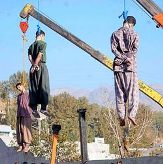Muslim dynasties & Islamic Imperialism
Part 1 of 4
While Ahmadi Muslims are celebrating the 100th anniversary of the return of the Caliphate whom they believe is the spiritual guardian of Islam, “an office they believe was revived after an absence of nearly 1,400 years in 1908,” America and the rest of the world still haven’t come to terms with even the term Caliphate, it’s meaning to Muslims around the world, and the implications it has to stamping out our current freedoms we have enjoyed for the past 300 years in both western Europe and America.
While Muslims across the world have been accusing western civilizations since the time of the Crusades of rampant Imperialism, for most of the past 14 hundred years since the founding of Islam, Muslims have been practicing imperialism and the expansion of Islam through any and all political and violent methods which is exactly what Mohammad, its founder envisioned. The Islam hierarchy has successfully accomplished through the sword, political intimidation, and the whole scale annihilation of entire civilizations while taking over entire continents. This 4 part article will attempt to summarize the four main Muslim dynasties by focusing on how they expanded, where they expended into, and what civilizations, cultures, and religious groups were severally affected or entirely ethnically enslaved or put to death if they didn’t submit to Islam.
While Muslims around the world denounce America by calling us Imperialist and chopping off our heads in the name of Allah, burning our flag, and calling for Jihad against the non-Muslim world. It should be noted that although America is most certainly guilty of mistakes in the past, after WWII, we saved the French from the Germans and left, we stopped Nazism in Germany, financed the reconstruction and left and did the same thing in Japan. Many other recent examples of us exist of America actually saving entire Muslim nations such as Kuwait from Sadaam Hussein and the whole scale bombing of Christians in Serbia to save Muslims under the Clinton administration. However, since the inception of Islam, after conquering whole countries, the Muslims have stayed and set up repressive governments which have lasted for centuries and continue to this day.
Since Islam’s inception, Muslims have waged holy Jihad against infidel non-Muslims to expand Islam’s dominance which has been characterized by whole scale massacre, pillaging, enslavement and expulsion from their homelands. No indigenous ethnic group was excluded from Islamic Jihad, Animist, Buddhists, Jews, Zoroastrians, Hindus and of course Christians where slain in the name of Allah to further the dominance of Islam. As Dr. Andrew G. Bostom points out in his comprehensive book entitled “The legacy of Jihad, Islamic Holy War and the Fate of Non-Muslims” any person or group of people that “survived these campaigns by submitting to Islamic rule over their native lands became forced tributaries (called dhimmi in Arabic) in lieu of being slain. Under the dhimmi religious caste system, non-Muslims were subjected to legal and financial oppression as well as social isolation.”
The Righteous Caliphs & the Rashidun Dynasty
After Muhammad’s death in 632AD, Abu Bakr, a rich clothes merchant and the 4th convert to Islam became the 1st Caliph in the history of Islam. Abu was Muhammad’s closest companion, friend, and military General running most of his military campaigns throughout the Arabian Peninsula during Muhammad’s rule. Although Abu Badr’s reign was only around 2.5 years, what makes Abu Bakr even more significant in the history of Islam is that Abu Bakr’s daughter Aisha at six years old married Muhammad in early 623 in a simple marriage ceremony. It should also be noted that although Muhammad had up to thirteen wives, Islamic and non-Islamic history as taught us that Aisha was Muhammad’s favorite wife and the most beautiful of all his wives.
Abu Badr’s is best known during his reign for the Ridda Wars which in the Islamic world is also known as the Wars of Apostasy. After the death of Muhammad many of the Arabic tribes that were forth to convert to Islam rebelled against both the religion and forced taxation (the Zakat) upon them and figured with the death of Muhammad, the Muslim armies would leave them alone. Hence not only were these revolts considered political in nature, religion also played a significant role since many of these tribes practiced other religions, most of them being pagan in nature.
In less than two years, Abu Bakr organized the invasion of the Nejd, Bahrain, Oman, Mahrah, Yemen, and Hadramawt which Muhammad had already envisaged. The famous Islamic historian Mr. Bostom writes that “Abu Bakr, the first caliph, launched the Great Jihad. The ensuing three decades witnessed Islamdom’s most spectacular expansion, as Muslim armies subdued the entire Arabian Peninsula, and conquered territories that had been in Greco-Roman possession since the reign of Alexander the Great.” After extension looting, whole scale killing of adult males and enslaving most of the women worth enslaving, Abu dictated that the only and true religion could be Islam and although Christians could still practice their Religion at that time, it had to be under Islam’s dictates. Although many treatises’ give us documented insight as to how non-Muslims had to live under Muslim rule, one of the most famous Muslim theologians and jurist al-Ghazali “highlighted how the institution of Dhimmitude was simply a normative and prominent feature of the Sharia law system:
“[T]he dhimmi is obliged not to mention Allah or his Apostle…Jews, Christians, and Majians must pay the Jizya [poll tax on all non-Muslims]…on offering up the Jizya, the dhimmi must hang his head while the official takes hold of his beard and hit the dhimmi on the protuberant bone beneath his ear…They are not permitted to ostentatiously display their wine or church bells…their house may not be higher than the Muslim’s no matter how low that is. The dhimmi may not ride an elegant horse or mule; he may ride a donkey only is the saddle is of wood. He may not walk on the good part of the road. The [the dhimmis] have to wear [an identifying] patch on their clothing, even women and even in the public baths…dhimmis must hold their tongue.”
After these Arab tribes rebellion were put down by Abu’s general’s, and force to pay the Zakat again, Abu Bakr commanded his general towards the Byzantine and Sassanid empires.
The Byzantine empire during this time was a Christian empire and the Sassanid empire was and is still considered the most important and influential historical periods of the Persians.
The second Caliph during the Muslim Rashidun empire period was Umar Ibn al-Khattab. Umar’s ruled from 634-644 A.D. and during Umar’s reign “Muslims conquered Mesopotamia, parts of Persia, Egypt, Palestine, Syria, North Africa and Armenia.” This period is also called “The Great Jihad” since despite the Greco-Roman possession since the reign of Alexander the Great, the great Greek Historian Constantelos observed, [B]oth Hellenism and Christianity were eliminated as major ethic, religious, and cultural forces in the Near East, save in Asia Minor and Cyprus.
As an additional historical note posed by Walter Kaegi in Dr. Bostom’s book “The Legacy of Jihad” was that “Part of Byzantium’s difficulties was generally poor intelligence on the Muslims and failure to act rapidly, properly, and decisively on what intelligence they did acquire about the Muslims. Although some Byzantines were immediately aware of the Islamic component in the motivation of Arabs, Byzantines generally underestimated the religious motivation of Arabs as Muslims, and understood very little about this new religion.” Clearly, nothing has changed over the course of 14 hundred years and our military and political leaders still don’t understand the expansionistic tactics of Islam nor do they learn or listen from our terrorist experts of today such as Steve Emerson. Instead, our government leaders choose to be educated and indoctrinated by the very people that want to kill them.
We also have some direct insight concerning this great Jihad from Umar Ibn Al-Khattab himself when he wrote:
“I through it necessary to reserve the land and its inhabitants, and levy from the latter the Kharaj by virtue of their land, and the capitation [Jizya] as a personal tax on every head, this poll tax constituting a fay in favor of the Muslims who have fought there, of their children and of their heirs. Do you think that these borders could remain without warriors to defend them? Do you think that these vast countries, Syria, Mesopotamia, Kufa, Basra, Misr [Egypt] do not have to be covered with troops who must be well paid? Where can one obtain their pay if the land is divided up, as well as its inhabitants?”
In essence, he is saying it takes taxes and armies to control the infidels and the non-Muslims must assume the burden of financing the Muslim armies to control them. This quote from the 2nd caliph from the 1st Muslim dynasty also clearly demonstrates imperialism from a Muslim’s perceptive; that being it’s OK to conquer all people and lands in the name of Allah because as Muhammad and the Quran dictate, it is a Muslim obligation and right to forcibly convert us if we do not convert on our own free will.
The third Caliph during the Rashidun period was Uthman Ibn Affan often called Othman in English. During Othman’s rule, “all of Iran, most of North Africa, the Caucasus and Cyprus were conquered and incorporated into the Islamic empire.” His rule was characterized by increasingly centralized control of revenues from the previously conquered provinces, aided by governors drawn largely from his kinsmen in the Umayyad clan. “Uthman appointed many of his kinsmen as governors of the new domains. Some of his governors were accused of corruption and misrule.”
An additional note of interest during Othman’s period of rule is that during his rule much of the text of the Quran as we know it today was compiled. It is even written that many of the personal companions of the prophet who resisted his interpretation and complication of the Quran were flogged, expelled from Arabia, or even put to death.
After the assassination of Uthman ibn Affan, Ali ibn Abi Talib came to power which lasted from 656-661 A.D. “His caliphate coincided with the First Fitna. The First Fitna, 656–661 CE, followed the assassination of the third caliph ,Uthman Ibn Affan, continued during the caliphate of Ali, and was ended, on the whole, by Muawiyah's assumption of the caliphate. This civil war is often called the Fitna, and regarded as the end of the early unity of the Islamic ummah (nation). This civil war created permanent divisions within the Muslim community because Muslims were and still are divided over who had the legitimate right to occupy the caliphate.” This division, which could also be considered a 14 hundred year old civil war between the Sunni and Shia is still as strong as it was just after Muhammad’s death.
Although Islam failed to expand further during the Rashidun empire, it did hold on and tighten its grip on all the non-Muslim nations it conquered by the sword or though political intimidation during this initial period of Islamic expansion. While the Rashidun Empire only less than thirty years before the next caliphate started, many modern Muslims still consider this the Golden age of Islam since it immediately follow the death of Muhammad and all 4 caliphs were actual companions of Muhammad. However, the second period, the Umayyad Empire, lasted even longer and expanded the rule of Islam even further. Part 2 of this article will touch upon the conquests and rule of Muslims during the Umayyad Empire.
Tuesday, June 3, 2008
Subscribe to:
Posts (Atom)










